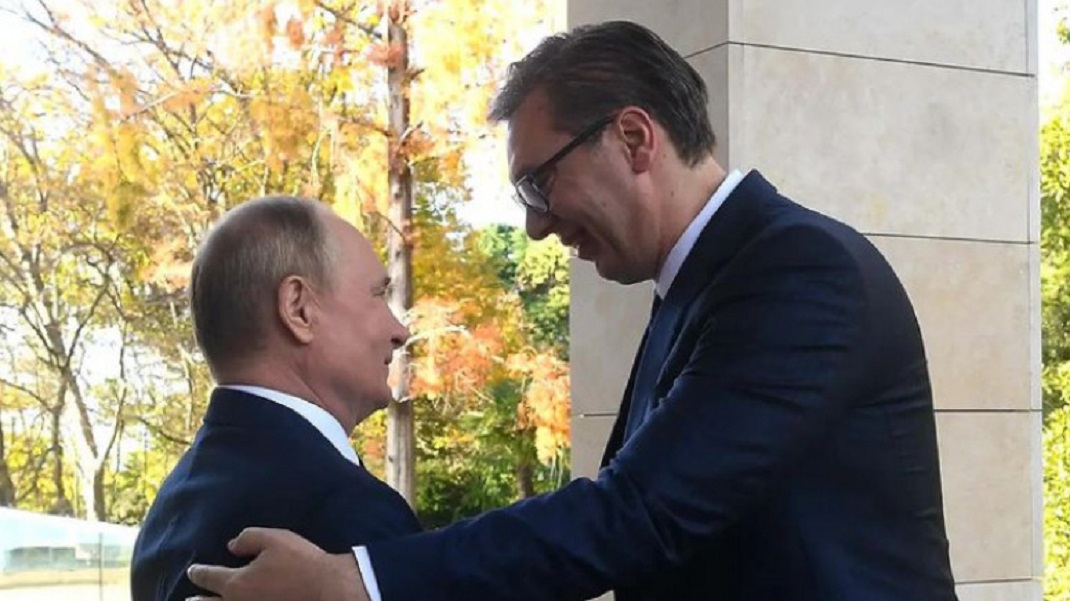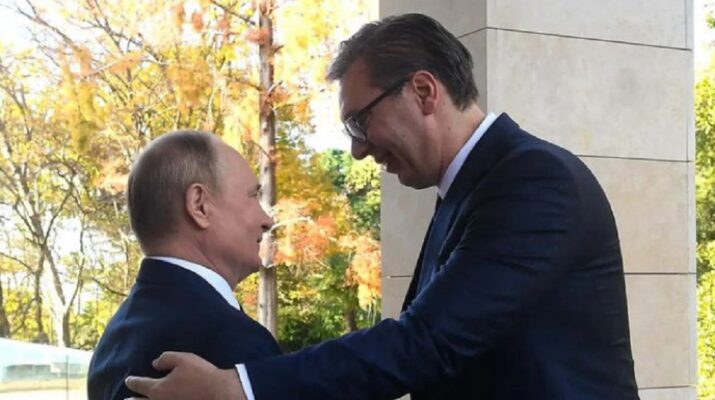POST-ELECTION ANALYSIS: New York Times on the sinking hopes of the USA: The elections pushed Aleksandar Vučić closer to Moscow

The accusations of the Russian ambassador to Serbia are the latest effort by Moscow to thwart the diplomatic campaign to pull Serbia out of Russia’s orbit, writes the New York Times. Fishing in the troubled waters of Serbia after disputed elections, Russia on Monday accused the West of organizing anti-government street protests in Belgrade, which were marked by violence on Sunday night, the American daily writes.
Russian Ambassador to Serbia Alexander Bocan-Kharchenko’s claims of a Western conspiracy represent Moscow’s latest effort to thwart the largely unsuccessful diplomatic campaign by the United States and Europe to pull Serbia out of Russia’s orbit and sever the traditionally strong ties between the two Slavic and Orthodox Christian nations, according to to the NYT text.
Peaceful street protests in Belgrade held due to what the opposition says are rigged general elections on December 17, escalated on Sunday after, as the New York Times reports, protesters tried to break into the City Assembly building where police threw tear gas at them.
The Russian ambassador said in a televised interview that there was ‘irrefutable evidence’ that the ‘unrest’ was instigated by the West. With this, he repeated Serbian President Aleksandar Vučić’s claims that his government was under attack from outside forces seeking a ‘color revolution’, a term coined by Russia to describe popular uprisings that it always dismisses as Western conspiracies.
“This was an attempt to forcibly take over the state institutions of the Republic of Serbia,” Vučić told TV Pink, a pro-government television station, deriding accusations of election irregularities as “lies” concocted by his political opponents.
There is no evidence that Western governments instigated last week’s street protests against Vučić and what his opponents describe as stolen Belgrade elections, the NYT reports.
The protests continued on Monday. Demonstrations led by students had a modest response, but the protesters still blocked traffic in the central Belgrade street to the Government headquarters.
In the report of election observers from the Organization for Security and Cooperation in Europe (OSCE) last Monday, it is stated that Serbian voters were given a wide choice of candidates and that ‘freedom of expression and assembly is generally respected’. But, it is stated, the ruling party had an advantage because “the pressure on the voters, as well as the determined participation of the president and the systemic advantages of the ruling party, undermined the electoral process as a whole.”
The ruling Serbian Progressive Party, as this media reports, outscored the opposition in the elections, but fared poorly in the Belgrade City Assembly elections, winning a narrow victory that the opposition attributed to voters they say were illegally brought to the capital from other areas of the country, with Kosovo and Bosnia. Accepting defeat in the vote for a new parliament, the opposition vowed to overturn the ‘fixed result’ in the Belgrade election and organized daily street protests over the past week.
Western countries, which are careful not to ‘burn bridges’ with Vučić, are quiet in their criticism of the election. The US Ambassador to Serbia, Christopher R. Hill, called on the country to address the “deficiencies” of the electoral system, but stressed that “the US government looks forward to continuing to work with the Serbian government” and that this cooperation includes regional issues as well as “the desire of Serbia to become part of the family of Western nations’.
In 2009, Serbia applied for membership in the European Union, but its application has been stalled for years. Since the beginning of the Russian invasion of Ukraine in February of last year, the pressure from the West on Vučić to choose a side has been growing.
Vučić condemned the Russian invasion of Ukraine but refused to join European sanctions against Russia and showed little interest in resolving the long-standing dispute over the status of Kosovo, as the New York Times writes – a former Serbian territory that declared itself an independent state in 2008.’ years.
Kosovo, populated mostly by ethnic Albanians, severed ties with Serbia after the NATO bombing of Belgrade and other cities in 1999, leaving even many pro-European Serbs deeply suspicious of the West’s intentions.
Bad blood has slowly subsided between Serbia and the West, which blamed Kosovo, not Vučić, for escalating tensions and fueling violence in predominantly Serb areas of northern Kosovo in September. This attitude has led to accusations by European politicians and commentators that they are trying to ‘pacify’ Belgrade because they see Vučić as the main threat to peace in the Balkans. Rather than giving Vučić more freedom to break with hard-line Serbian nationalist forces closely tied to Russia, as Washington had hoped, the recent elections seem to have only pushed him closer to Moscow.
After the clashes in Belgrade on Sunday night, Serbian Prime Minister Ana Brnabić, a close ally of Vučić, thanked Russian security forces for sharing information that pointed to a Western hand in the protests, the NYT recalls.
Napomena o autorskim pravima: Dozvoljeno preuzimanje sadržaja isključivo uz navođenje linka prema stranici našeg portala sa koje je sadržaj preuzet. Stavovi izraženi u ovom tekstu autorovi su i ne odražavaju nužno uredničku politiku The Balkantimes Press.
Copyright Notice: It is allowed to download the content only by providing a link to the page of our portal from which the content was downloaded. The views expressed in this text are those of the authors and do not necessarily reflect the editorial policies of The Balkantimes Press.

